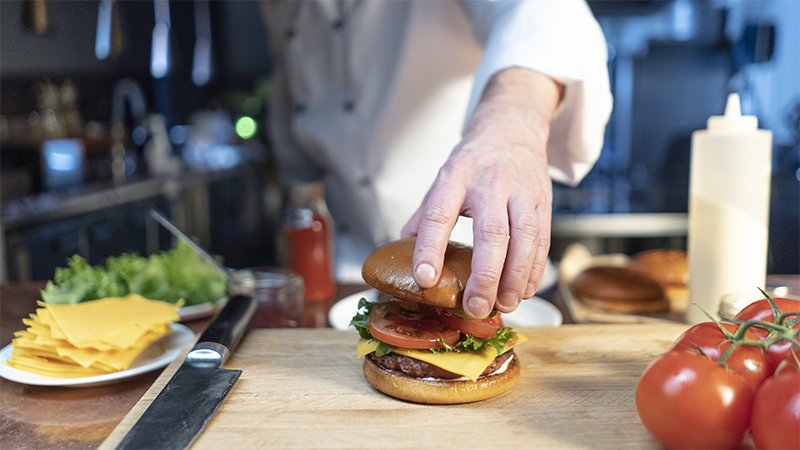We are what we eat, but what are we eating? An expert article on the future of food, pt. 1.
作为人类,我们与食物的牢固纽带和浪漫的关系通常会在我们饮食,来自何处以及对健康和星球的影响方面笼罩我们的判断。更多和更好的数据是提高我们食品生产和消费习惯的盖子的关键,并为我们提供动摇食品系统并应对与食品相关的挑战所需的工具。
我们需要从根本上改变生产食物的方式;我们还必须认识到,气候变化对我们的食品系统构成了巨大威胁,这意味着必须在弹性方面建立。更多和更好的数据对于应对这些挑战并提高食品生产和加工的效率至关重要。
低技术和渴望数据
在过去的几十年中,我们几乎在生活的每个领域都看到了巨大的技术进步,但是初级粮食生产仍然是一个相对较低的技术领域,受经验法则而言,与精确的,系统的,系统性的过程相比,这是一个相对较低的技术竞技场。我们在工业化食品加工中看到的传感器和测量值。
When deciding what to eat, how much, and when, we are still slaves to our literal gut feeling. As well as being hungry for food itself, we should be hungry for data related to that food because, right now, many of us make poor choices about what goes into our mouths.
具有挑战性的误解
We also often make poor choices when it comes to where our food comes from. It’s understandable to think that buying locally produced food is better for the environment, but that is not necessarily the case. Transport and packaging play a tiny part in a food’s carbon footprint when compared to the energy and other resources, like water, needed for actual production. Thus, what you eat matters more than where it comes from.
人们认为可持续生产的当地食物是美好而有益健康的(而且是!),而且工业生产的食物也更糟。他们还认为,乳制品和面包店比工厂“更好”或“更好”,而实际上,面包和奶酪都经过了大量加工。
标签是数据的使者
在当今的食品标签上找到您要寻找的东西,无论是脂肪含量还是与过敏有关的信息,都可能是一项艰巨的任务。简单是必须的,尤其是如果我们想找到更好的方法来量化和传达从农场到叉子的粮食生产的影响。
I can see a future where every food item we buy comes labelled with a simple number to indicate its carbon footprint, like the A–F energy consumption rating for household appliances. Clearly communicating this kind of data is key if we want to know how to change our habits, but we are not there yet. Calculating such a figure is still very complicated and the standards are not in place. The increasing popularity of digital grocery shopping provides new opportunities: we could receive a monthly report on the carbon footprint of the last four weeks’ purchases with figures to indicate its environmental impact. And not only carbon, but also water and land use and impacts on biodiversity! This will require measurements throughout the whole supply chain, and the data needs to move in both directions, from production through processing and on to consumption and back.
测量,计算和理解
计算我们生产和消费的食物的真正气候影响是一项非常复杂的任务。例如,我们可以准确地测量并计算出从现成的成分中生产准备餐点的能量或水量,但是计算其生长所有这些成分的总体气候影响是完全不同的球游戏,其中有许多因素。如何生产的能量,使用了什么样的水,运输了多少公里以及通过什么方法?更重要的是,该领域是如何管理的,使用了什么样的肥料,是否砍伐了森林以腾出空间?我们可以在整个供应链中衡量的越多,就越能了解改进的位置。
New tools and technologies can help us to gather the data we need to better understand what is happening in our fields, livestock sheds, and fisheries. For example, the very thin layer of earth’s topsoil contains more carbon than our atmosphere, and by measuring and monitoring it we can use this information to encourage farming practices that help to keep the carbon where it is and sequester even more.
- -
在本文的下一部分中,我将讨论食物的未来以及技术在帮助我们找到新方法来满足食欲并同时保护地球的新方法中所发挥的作用。

劳里·路透
博士学位
Dr. Lauri Reuter is an expert in the future of food, and the person to ask if you’ve ever wondered what we are going to eat in the future, and how all that food is going to be produced. He currently works in investments in bold Nordic innovations that aim to transform the global food system. Dr. Reuter has a PhD in Biotechnology and is a former Senior Specialist of Disruptive Technologies at VTT Technical Research Centre of Finland as well as an alumnus of the Singularity University Global Solutions Program.
网络广播:食物的未来
How will our food be produced? Can food production help alleviate the climate crisis? Will vertical and urban farming change our landscape? Could vat-grown meat make food crises a thing of the past? What will we eat on Mars?
所有这些以及更多内容都涵盖了深远的小组讨论。与博士一起劳里·鲁特(Lauri Reuter),博士奇异大学和Vaisala的有远见的生物技术科学家Jutta Hakkarainen&玛丽亚·乌西玛(Maria Uusimaa), directors of Liquid Measurements and Industrial Instruments, respectively, talk about tackling the megatrend-level challenges facing not just the food & beverage industry, but all of our planet.

